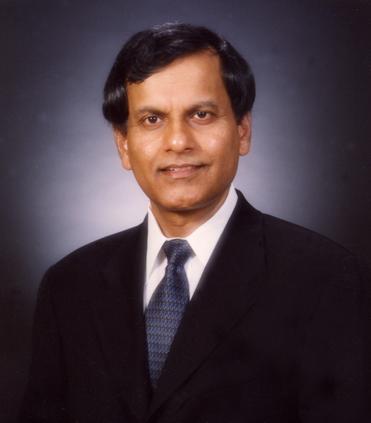|
IEEE
ICMA2006 Conference
Plenary
Talk
Application of the Mechatronic Design
Quotient (MDQ) for
Intelligent Design and Evolutionary Design of
Mechatronic Systems
Clarence W. de Silva, P.Eng
NSERC
Research Chair in Industrial Automation and Professor
University
of British Columbia
Vancouver
, Canada

Abstract:
Mechatronic systems are integrated
electro-mechanical systems. Intelligent mechatronic systems possess
computational intelligence with capabilities such as perception, learning,
reasoning, and making inferences from incomplete information. A mechatronic system will consist of many different types
of interconnected components and elements. The dynamic coupling between
components means an accurate design of the system should consider the entire
system as a whole rather than using single-criterion and sequential
design methodologies, which are traditional. However, in view of the system
complexity, it is difficult to adopt a 乬wholistic乭 approach in practice. The
presentation will explore a multi-criteria and concurrent approach to
mechatronic design and evaluation. A design formulation and criteria based on
the concepts of mechatronic design quotient (MDQ) will be introduced for this
purpose. Human experience on mixed systems and interactions between criteria
will be taken into account by applying techniques of soft computing for the
aggregation of criteria. The use of artificial intelligence and evolutionary
computing in the design of mechatronic systems may be viewed as an attempt to
mimic "natural" intelligent design and "natural" evolution of a biological
system (e.g., human), albeit in a greatly simplified form. The talk will
address these concepts as well. In particular, intelligent design is applicable
when human intelligence is used in the design process. On the other hand,
evolutionary design is applied when evolutionary computing is used in the
design process. Several industrial applications of intelligent mechatronics
have been designed and developed in the Industrial Automation Laboratory under
the direction of the speaker. Representative applications involving robotic
object handling, cutting, inspection, and grading of products will be
presented.
Reference:
De Silva, C.W., Mechatronics?An Integrated Approach, Taylor-Francis, CRC Press, Boca Raton, FL,
2005.
Clarence
W. de Silva, P.Eng., Fellow ASME and Fellow IEEE,
is Professor of Mechanical Engineering at the University
of British Columbia, Vancouver, Canada,
and has occupied the NSERC Research Chair in Industrial Automation since 1988.
He has earned Ph.D. degrees from Massachusetts Institute of
Technology (1978) and the
University
of
Cambridge,
England
(1998). De Silva has also occupied the Mobil Endowed Chair Professorship in the Department of Electrical and Computer
Engineering at the National University of Singapore. He is recipient of the
Killam Research Prize, Outstanding Engineering Educator Award of IEEE Canada,
Education Award of the Dynamic Systems and Control Division of the American
Society of Mechanical Engineers (ASME), Lifetime Achievement Award of the World
Automation Congress, IEEE Third Millennium Medal, Meritorious Achievement Award
of the Association of Professional Engineers of BC, and the Outstanding
Contribution Award of the Systems, Man, and Cybernetics Society of the Institute
of Electrical and Electronics Engineers (IEEE). De Silva has authored or
co-authored 16 technical books, 12 edited volumes, over 160 journal papers, and
about 200 conference papers and book chapters. He has served on the editorial
boards of twelve international journals, in particular as the Editor-in-Chief
of the International Journal of Control and Intelligent Systems,
Editor-in-Chief of the International Journal of Knowledge-Based
Intelligent Engineering Systems, Senior
Technical Editor of Measurements and Control, and Regional Editor, North America, of Engineering Applications of Artificial Intelligence -- the IFAC
International Journal of Intelligent Real-Time Automation. De Silva is a Lilly Fellow at Carnegie
Mellon University,
Senior Fulbright Fellow at
Cambridge
University
, Fellow of the
Advanced Systems Institute of British Columbia, and a Killam Fellow.
|